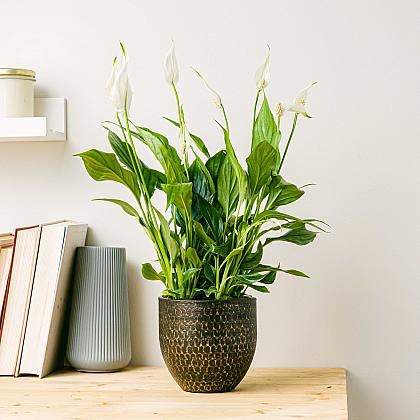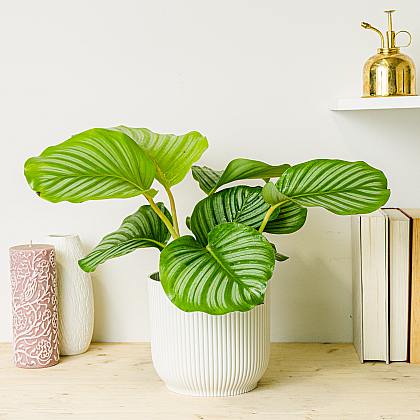Discover the Versatile Powers of Rosemary
Explore the myriad uses and benefits of rosemary, a versatile herb celebrated for its culinary, medicinal, and aromatherapy properties.

Explore the myriad uses and benefits of rosemary, a versatile herb celebrated for its culinary, medicinal, and aromatherapy properties.
Originating from the Mediterranean, rosemary adds depth and complexity to dishes, while its herbal remedies aid digestion and boost immunity.
Its invigorating scent uplifts mood and reduces stress, making it popular in aromatherapy.
Discover how to incorporate rosemary into your cooking, harness its therapeutic benefits, and create homemade products.
Embark on a rewarding journey of exploration and embrace the versatile powers of rosemary.
Culinary Uses of Rosemary
Rosemary is a highly versatile herb that adds a distinctive flavor to Mediterranean cuisine and pairs well with a wide range of ingredients such as meat, poultry, fish, potatoes, and vegetables. Its strong, aromatic taste and pine-like fragrance make it a popular choice in many dishes.
One way to enhance the flavor of dishes is by infusing rosemary in oils or vinegar. Rosemary-infused oils can be used as a finishing touch to drizzle on roasted vegetables or grilled meats, adding a fragrant and savory note. Similarly, rosemary-infused vinegar can be used to make salad dressings or marinades, imparting a unique taste and aroma.
The infusion process allows the herb's flavors to infuse into the oil or vinegar, creating a versatile ingredient that adds depth and complexity to any dish.
Herbal and Medicinal Uses of Rosemary
Continuing from its versatility in culinary applications, rosemary also boasts a wide range of herbal and medicinal uses.
When used in the form of herbal tea, rosemary offers numerous benefits. It can improve digestion, boost the immune system, and be combined with other herbs like mint, lemon balm, or lavender to enhance its effects.
Additionally, rosemary essential oil is highly valued for its medicinal properties. It has anti-inflammatory and antioxidant properties, improves digestion, boosts the immune system, and relieves pain.
Moreover, rosemary essential oil is known to stimulate hair growth, improve scalp health, prevent dandruff, and provide antioxidants for skin protection.
With its diverse range of uses, rosemary has been a staple in traditional medicine for centuries.
Aromatherapy With Rosemary
Moving on to the next facet of rosemary's versatility, aromatherapy harnesses the refreshing and uplifting scent of this herb to enhance mood, reduce stress, and clear the mind.
Rosemary essential oil is widely used in aromatherapy and massage due to its numerous benefits. When used in skincare, rosemary essential oil can improve the overall health and appearance of the skin. Its antioxidant properties help protect the skin from damage caused by free radicals, while its anti-inflammatory properties can reduce redness and inflammation.
To use rosemary essential oil for stress relief, you can add a few drops to a diffuser or inhale it directly from the bottle. Alternatively, you can mix a few drops with a carrier oil and apply it to your temples or pulse points for a calming effect.
Incorporating rosemary essential oil into your daily routine can provide a natural and effective way to promote relaxation and well-being.
Harvesting and Storing Rosemary
To ensure the freshness and quality of your rosemary, it is important to properly harvest and store this versatile herb. Here are some harvesting techniques and proper storage methods to consider:
Harvesting techniques:
Cut off the stems of rosemary you want to use fresh or dry.
Wash the leaves and harvest rosemary from a plant without pesticides or chemicals.
Proper storage methods:
Store rosemary in an airtight container in the refrigerator to maintain its freshness.
Alternatively, you can also freeze rosemary by placing the sprigs in a freezer bag or container.
Another option is to dry rosemary by hanging the stems upside down in a cool, dry place until they become brittle, and then storing the dried leaves in an airtight container.
Following these techniques and methods will help you preserve the flavor and aroma of your rosemary for an extended period.
Other Uses for Rosemary
Rosemary can be utilized in a myriad of ways beyond its culinary and medicinal applications, making it a truly versatile herb. It can be used as a natural insect repellent, keeping mosquitoes, flies, and fleas at bay. Additionally, rosemary is a favorite ingredient for DIY beauty products, thanks to its numerous benefits for hair and skin.
Here is a table showcasing the different uses of rosemary in DIY beauty products:
| DIY Beauty Products | Description |
|---|---|
| Bath Salts | Rosemary-infused bath salts can provide relaxation, relieve muscle tension, and promote overall well-being. |
| Face Toner | Rosemary can be used in homemade face toners to help balance the skin's pH level, tighten pores, and reduce inflammation for a clearer complexion. |
| Room Spray | A rosemary room spray can freshen up any space with its invigorating scent, while also possessing antibacterial properties to purify the air. |
| Candles and Potpourri | Adding rosemary to candles and potpourri can infuse the environment with a delightful fragrance, bringing a sense of calm and tranquility to the surroundings. |
Incorporating rosemary into these DIY beauty products not only allows you to harness its natural goodness, but also adds a touch of luxury to your self-care routine.
In conclusion, rosemary is a versatile herb that offers a wide range of culinary, herbal, medicinal, and aromatherapy uses.
Its distinct flavor and aroma make it an excellent addition to various dishes, while its health benefits make it a valuable herbal remedy.
Additionally, rosemary's invigorating scent can uplift mood and promote mental clarity in aromatherapy.
With its many uses and benefits, incorporating rosemary into your daily life is a great way to enhance your well-being.


